Bluey’s special 28-minute episode ‘The Sign’ is more sophisticated than most things made for adults
Emotionally sophisticated and insightful, Bluey’s special bumper 28-minute episode does not disappoint.
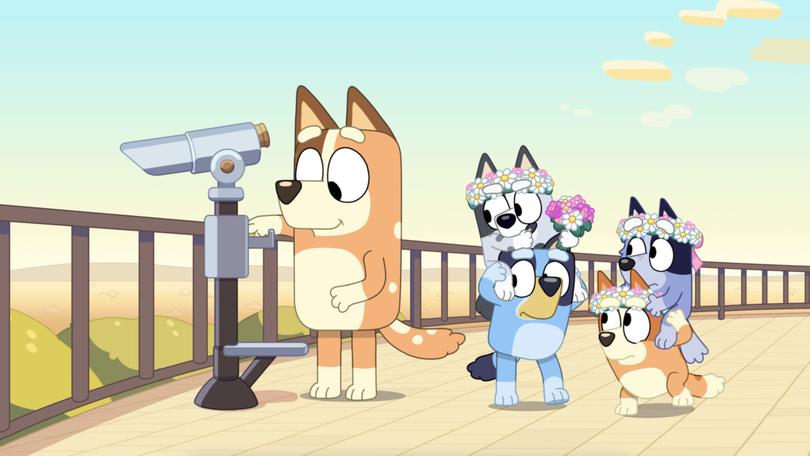
Anyone who has watched Bluey will know that the kids TV show is packed with emotional maturity.
So, it’s no surprise that the super special bumper episode of Bluey, “The Sign”, is a story that mixes playfulness, excitement and grace. In its 28 minutes (four times the length of a regular Bluey episode), “The Sign” contends with complex subjects with more intelligence and warmth than two-hour movies or 24-episode seasons of TV made for adults.
Parents have been bracing for “The Sign” with a smidge of anxiety after rumours that it could be the last ever Bluey episode, especially as the previous instalment closed with a shot of a “For Sale” sign outside the Heelers’ house.
Sign up to The Nightly's newsletters.
Get the first look at the digital newspaper, curated daily stories and breaking headlines delivered to your inbox.
By continuing you agree to our Terms and Privacy Policy.Don’t despair — over the weekend, one of the producers confirmed the series is returning for another season.
Before that, Bluey’s family is selling their home with an impending move to another city where dad Bandit has nabbed a job that “pays a lot more money”. Mum Chili doesn’t seem too thrilled with it either but is putting on a brave face for the kids, promising it’ll be a big adventure.
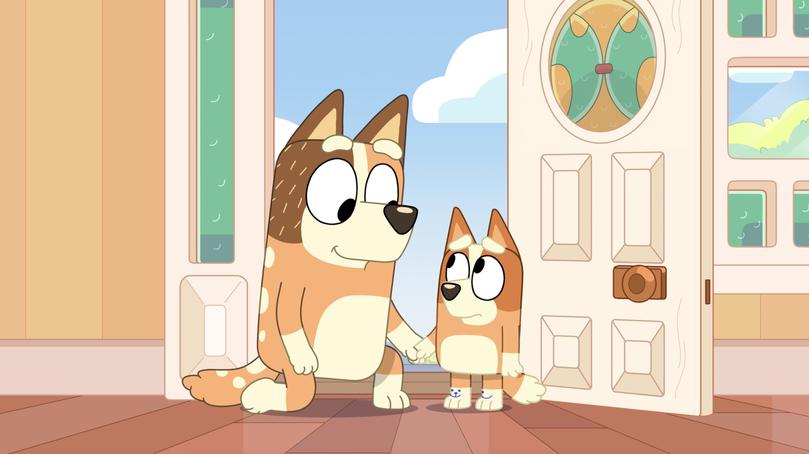
While Bingo is laissez-faire about it (revealed later on to be because Bingo didn’t understand what selling the house meant) Bluey is very resistant to the idea and tries to pull the “For Sale” sign out of the ground.
Despite the extended length of “The Sign”, the episode is segmented into smaller arcs that tie into the whole story. There’s a plot involving Frisky cancelling her wedding. Chili and the kids give chase to find the runaway bride.
In the end, Bluey accepts the decision and everyone packs up but at the last minute, the buyers change their mind and Bandit decides he doesn’t need to move his family for the “better life” a higher-paying job promises. Everything they need is right there.
Sounds like a simple story but there are a lot of layers at work here. The first is the idea that a higher salary is better for their family, which was Bandit’s reasoning for uprooting everyone.
This is less for the kids watching and more for their parents, perhaps stuck on a corporate hamster wheel, constantly working more hours for a promotion to maybe earn enough to send their kids to private school or buy a bigger house with more bedrooms.
Bluey is refuting the idea that aspiration has to be material. When politicians bang on about aspiration, they’re usually trying to make some point about why people in higher income brackets shouldn’t have to pay more taxes.
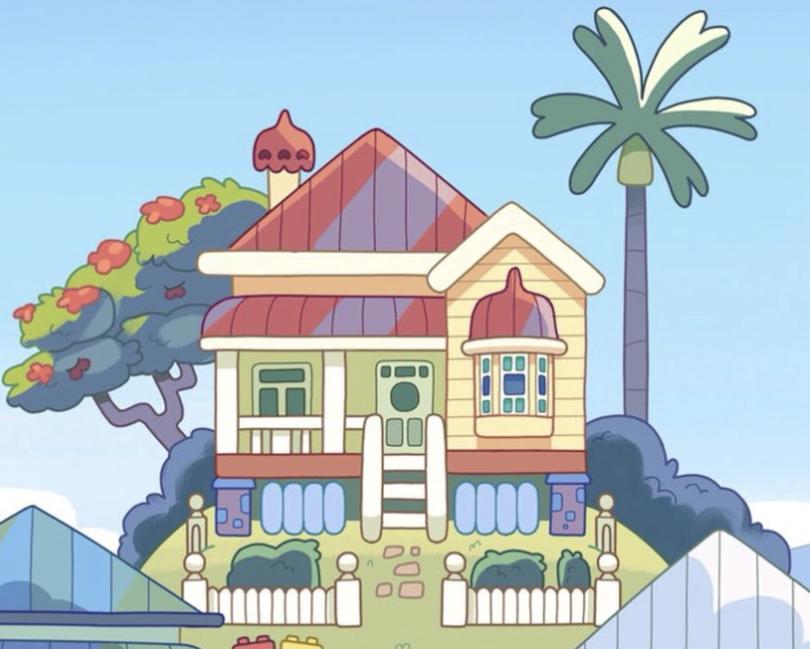
We’ve seen over three seasons the middle-of-the-road Heelers have a relatively modest home (no pool!), food on the table and only one car. But what they do have in abundance is the fact they’re present for each other.
Bandit, as a character, has been hailed as a representation of a dad who is there to play with his kids and spur on their imaginations. If he took a higher paying job, he may have less time, and for Bluey and Bingo, that’s not a “better life”.
It’s an argument to reframe what aspiration is in a country that is obsessed with “upgrading” their lives with material wealth. It’s likely not a coincidence that the conflict here has to deal with selling their house.
Australia’s conception of property as wealth accumulation rather than as hearth and home has led to a crisis point. The episode even has a skeezy real estate agent who tries to convince some sheepdog buyers that Queensland weather is not that hot.
The second aspect of “The Sign” is the more emotionally significant one, and that’s to do with how we face change.
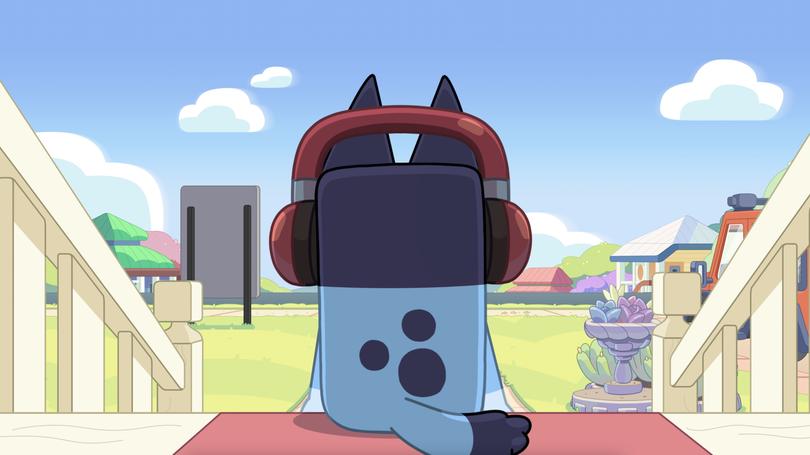
Bluey is upset at having to leave her home and life as she knows it and when she reveals this to her class, her teacher tells them the story of a farmer whose horse runs away. Each beat of the story leads to a good outcome and then a bad outcome and then a good outcome and then… the story doesn’t end on either. It ends with a “we’ll see”.
The point of the story is you don’t know what everything that comes your way could lead to. “Everything will work out,” Bluey’s teacher tells her. If you really think about it, it’s a neutral phrase.
Things work out the way they’re “supposed to” not because it’s pre-ordained but because life is linear. It’s cause and effect, it’s not specifically positive or negative.
For Bluey, the happy ending she desires, in that moment, is the family doesn’t move. That is how it works out, but it could easily not have happened. It was a matter of chance as well as choice.
If Frisky hadn’t called off the wedding, Chili and the girls wouldn’t have been in that juice shop and found the coin that would eventually get stuck in the binoculars which the sheepdogs used to find that other house which had the pool.
By the time Bandit decides to stay, Bluey has learnt that change means possibility. You don’t know what it could bring.
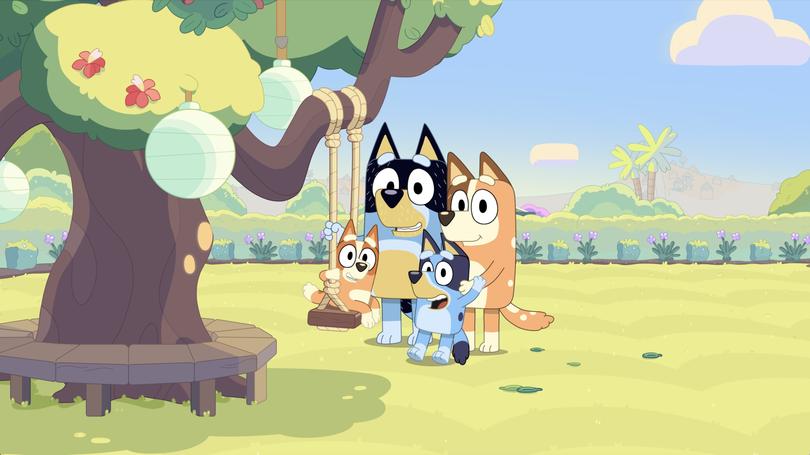
That’s a sophisticated emotional response that adults spend a lot of time and money on therapists’ couches and still can’t accept. Learning and being OK with the fact you can’t control everything is an incredibly difficult concept to articulate with depth.
That Bluey can do it in under half an hour is testament to the series’ insightfulness.
There’s a version of “The Sign” which ends with Bluey, Bingo, Bandit and Chili making that move to another city, and the show could’ve either ended there or created adventures in a different place.
In a way, not doing that, by circling back to where the episode started, at least spatially, is kind of a cop-out. But you get why the choice was made – and not just because Bluey, according to Bloomberg, is a $US2 billion empire.
Earlier in the episode, Bluey asked her teacher, “Why do stories always have happy endings?” to which the reply was, “Because life gives us enough sad ones”.
Bluey couldn’t resist the happy ending of the Heelers staying put in their home, in a community with their friends and family, but in the process, “The Sign” was a journey worth taking.
As for what season four might bring? Well, we’ll see.
Bluey is on ABC TV and iview

